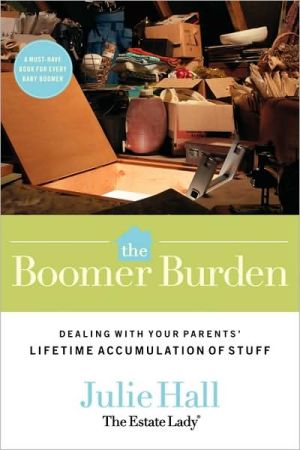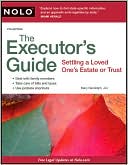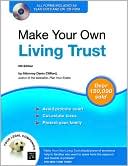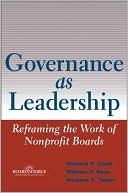Boomer Burden: Dealing with Your Parents' Lifetime Accumulation of Stuff
A practical guide to advise Baby Boomers how to deal with the daunting task of facing a parents' eventual passing as it relates to residential contents, heirlooms, and the often difficult family interactions and feuds that accompany them.\ With fascinating stories and comprehensive checklists, professional estate liquidator Julie Hall walks Baby Boomers through the often painful challenge of dividing the wealth and property of their parents' lifetime accumulation of stuff. From preparation...
Search in google:
A practical guide to advise Baby Boomers how to deal with the daunting task of facing a parents' eventual passing as it relates to residential contents, heirlooms, and the often difficult family interactions and feuds that accompany them.With fascinating stories and comprehensive checklists, professional estate liquidator Julie Hall walks Baby Boomers through the often painful challenge of dividing the wealth and property of their parents' lifetime accumulation of stuff. From preparation while the parent is still living through compassionately helping them empty the family home, The Estate Lady® gives invaluable tips on negotiating the inevitable disputes, avoiding exploitation from scam artists, and eventually closing the chapter of their lives in a way that preserves relationships and maximizes value of assets.
The Boomer Burden \ Dealing with Your Parents' Lifetime Accumulation of Stuff\ \ By Julie Hall Thomas Nelson \ Copyright © 2007 Julie Hall\ All right reserved.\ ISBN: 978-0-7852-2825-7\ \ \ \ Chapter One \ First Signs\ You can't escape it-the sense of dread is hovering over everything you do. This is the pivotal moment in each boomer's life: you see your parents becoming more afflicted with age and fragility, and you are hit by a dizzying feeling of all the details about to land on your lap. I call this experience the flying brick, and it will strike you right between the eyes if you are not prepared. Suddenly you become all too aware of what your parents are doing-and not doing-such as eating well, paying bills, keeping up with the house, personal hygiene, and so on. Their behavior may be odd and troublesome. Their home is filled with stacks of clutter you have tried to get them to clear out for a decade. The kitchen cabinets are crammed with canned goods, most of them expired. The attic is filled with memories, but everything has rotted with the passage of time and exposure to the elements. All the bills and finances are out of order. You are beginning to see the writing on the wall.\ I'd like to share with you a heart-wrenching story that still makes the hair on the back of my neck stand up when I think of it, and it caused me to write this book. Some of you will be able to relateto this experience, and others will be horrified by it. My hope in sharing my personal, real-life stories in this book is to move you into action, realizing what you can glean from these experiences.\ The Crime Scene\ Receiving a phone call from someone in crisis is common at my office, but when the phone rang one afternoon, and it was a colleague claiming an emergency, I knew the matter was very urgent.\ My colleague said one of his clients, who was preparing to move to a safe environment for those afflicted with Alzheimer's, was at home alone when her neighbors-so-called friends-and a few antique dealers all decided to pay her a visit on the same afternoon. (Word spreads like wildfire any time an older adult begins downsizing an estate, and I caution you to pay close attention to this story so you can protect your loved ones.)\ With a frantic tone in his voice, he urged me to drop what I was doing to visit his client. This elderly woman, suffering from Alzheimer's, was alone in her home, which was filled with many valuable possessions. Apparently several people, who had found out that she was moving into an assisted-living facility, came by to "purchase" all of her assets. My colleague had tried to get the dealers out of the house, but no one took him seriously. Knowing that I deal with this sort of thing daily and that I was only a short distance from the woman's home, he asked me to intervene quickly.\ I had never met this elderly woman but knew I was being asked to take care of a very difficult situation. You see, these neighbors and friends and dealers were literally stripping her home of her lifelong heirlooms, possessions that were supposed to be passed down to her children after her death. But sadly, her children would never see those heirlooms again.\ After arriving at the home and introducing myself to the elderly woman, I encouraged her to phone her daughter and son and allow me to speak with them. My colleague and I did not have her children's phone numbers, and the assisted-living facility could not give us that information for legal reasons. So our only hope was for this precious woman to give us their contact information. But her disease had progressed too far, and my efforts proved futile. There were nine friends and neighbors in her home, busily packing and wrapping valuable items, throwing money at her for things they were taking. In her advanced diseased state, she simply didn't know any better. But they did.\ It didn't take long for my temper to flare, and I approached each friend and neighbor and dealer, pleading with them to pay her at least half of what these items were worth because her long-term care in the Alzheimer's facility would cost a tremendous amount annually. Again, my efforts proved futile. Not one of them acknowledged my presence. This went on and on. What I witnessed was like watching a vulture strip a bone-clean, fast, and leaving no evidence of what used to be. I watched in horror as all her beautiful possessions disappeared from her once-lovely home. The sterling flatware worth $2,000 went out the door for $20; the antique $1,000 desk was taken for $15; the antique French bronze mantel clock worth $2,500 walked out the door for $50; and other valuable antique furniture left for $10 and $20, never to return. How I wished her children could have been there to defend her. How I wished they would have known to expect exploitation in times of fragility!\ The sensation of my heart sinking was almost more than I could take. But my work was not yet finished. Interestingly enough, when I approached these "vultures," they refused to look at me because they were well aware of what they were doing. In my disgust for what I had just witnessed, I angrily shouted, "How will any of you sleep tonight, knowing what you have done to this woman who cannot defend herself?"\ Not one person looked up. No one even uttered a word. And no one dared to look me in the eyes. What they did, however, was wrap up these heirlooms even faster and shove them in their vehicles for a quick getaway.\ Feeling totally helpless, I called a friend who is a sergeant on the police force. "Sergeant, here's the situation. Can I get anyone who's doing this on grand larceny? They are ripping this poor lady off." He asked me a number of questions, starting with, "Did she accept the money regardless of how little it was?" I replied, "Yes, but she does not have all her mental faculties."\ "Can you prove it?" asked my police friend. Well, the elderly woman's deteriorating medical condition could have been proven, but it would have taken many months and going to court to do so.\ The sergeant said, "Julie, we see this all the time. I know it's really hard to watch. There's nothing you can do about it because she willingly accepted the payment for these items. The kids left her alone in the house too long. I'm sorry, but there is nothing you can do."\ Those words changed the course of my life forever. I'm a professional in the estate industry who has seen virtually everything. Someone telling me "there's nothing you can do" was a lot like that flying brick-I just didn't see it coming. For me, the thought of not being able to do anything to help this poor woman was pure torture. Then it hit me: if this one woman could do nothing to help herself, and I wasn't there as her hired estate professional guarding her estate, imagine how many other senior adults are getting ripped off every hour of every day in every city? My head began to spin!\ When I returned to my office, I closed the door and wept for what seemed like hours. Alone at my desk, the solitude invited deep thought. I wept for this woman with Alzheimer's, who had been grossly taken advantage of by unscrupulous people. I wept because I was totally helpless in the situation. Her children could not be reached, and I had no authority over her estate; all I had was my voice and anger, which didn't get me very far. And I wept because I knew thousands of people just like this woman were getting ripped off every single day. We are supposed to help one another, especially those who cannot help themselves. If you were in that woman's situation, wouldn't you want some kind person to look after you?\ It took me quite a while to realize that my feelings of anger and outrage could be turned into a positive course of action. My new goal was to inspire boomer children to deal with their parents' estate and possessions with knowledge and peace of mind. And so this book was written just for you, a true labor of love with care and compassion for you and your family.\ I know this story seems almost too awful to be true, but it really happened, and I see similar episodes of people preying on helpless older adults. But even if there are no predators involved, facing the inevitable decline of your parents can be just as heart wrenching. Maybe you can relate to Don and Mary's story.\ Something You Don't Want to Think About\ As Don backed the car out of the driveway of Mary's parents' home-the home Mary grew up in-they said little to each other. Mary felt the lump in her throat grow as she fought back tears, watching her mom wave from the wide front porch. She recalled the many mornings when her mom stood in that very spot and waved as Mary climbed onto the school bus waiting at the end of the driveway. Sometimes her mom would yell out, "Your lunch!" and then run back into the house to retrieve the brown bag she had just packed earlier with a healthy meal. How different she is now, Mary thought, recalling what had happened just moments ago.\ Ever since her dad retired, these occasional trips to her hometown had been a joy. It was so good to see her dad enjoying his much-deserved retirement from the textile plant he managed, and Mary's kids loved sitting on the big front porch with Grandma as she told them stories about her own childhood and taught the girls how to weave garlands from the daisies she grew in her garden.\ But a year ago Mary's dad had suffered a stroke, and the trips were harder to make. He had recovered well enough, even regaining most of the functions he'd lost, but it wasn't the same. Once a robust, gregarious man who golfed almost every day since he left the plant, he now spent most of his time watching television or sitting in his favorite chair by the window, paging through magazines or watching the traffic on the now-busy street in front of the house. Her mom did her best to cheer him up and keep him active, as the doctor told her she should do, but it was getting difficult for her to get around because of her knees.\ Finally Mary spoke. "Maybe we should find someone to come in and do their laundry. Those stairs to the basement are just too much for Mom, and I noticed this time that both of them look like they're wearing the same clothes every day."\ Her husband eased the car onto the freeway and then reached over to grab her hand. "Speaking of the basement, have you been down there lately? I went down to get a wrench from Dad's tool bench, and I could barely walk through all the stacks on the floor. There is stuff everywhere: magazines, cases of canning jars, coffee cans, cardboard boxes, mildewed books-piles of stuff that haven't been used in years. It's as if they tried sorting all their things and just gave up."\ "Yeah, I wasn't going to say anything, but it's pretty bad. I asked Mom about it, and she acted like it was nothing. She even got a little testy with me, which just isn't like her."\ They rode on in silence, passing shopping centers and strip malls and housing developments where cows once grazed.\ Finally, Don spoke. "You know, Mary, they may need more than someone coming in to do the laundry. That little flare-up on the stove could have been a disaster if we hadn't been there. Your mom's still a great cook, but every now and then she just sort of zones out. Have you noticed that?"\ Mary couldn't answer because it dawned on her for the first time that going home would never be the same. She saw the same things in her parents that Don did, but she didn't want to think about them. In a way, she didn't even want to talk about these things because if she did, they must be true. Both of her kids were in college and couldn't get away as often to visit their grandparents. It would be so hard for them to see Grandpa and Grandma this way. She squeezed Don's hand and then turned and stared out the window, wondering what they would discover on the next visit. It was something she didn't want to think about.\ Something's Wrong Here\ Right about now, your gut may be telling you something is amiss. Feelings of frustration, panic, and being overwhelmed accompany these thoughts, and before long, your head begins to spin with the thoughts of, Where do I begin? and What if ...?\ What you are experiencing is completely normal. You are in that group of people we call the Sandwich Generation. You still need to care for your children as they lean into their adult lives, but you need to care for your parents as well, even if they don't acknowledge it. It's a very difficult place, but you can make it easier on yourselves as well as your parents. In this book, I will show you ways to deal with your parents' lifetime of accumulation in a simple, systematic approach, but you need to decide right now that you will actively manage this challenge rather than being passive and letting it manage you. The first thing you can do to avoid the flying brick is to be honest about the signs you are beginning to see in your parents.\ At first, it's the little things. The once neatly manicured lawn isn't quite up to your dad's standards. The refrigerator is stuffed with leftovers and half-empty containers. Bills are overdue. You don't think much of it. After all, your parents are in their seventies or eighties. How many of your friends' parents still live in the family home? Besides, your mom and dad have earned the right to slow down a little. Who's keeping track of how neat the kitchen is anyway?\ We see these signs and tend to ignore them for a lot of reasons. For one thing, we don't like to think about our parents growing old. We get stuck with this image of them, maybe right after retirement, when they're happy, full of life, and enjoying the freedom of not having to work. We also have an uncanny sense of knowing our place. For all our lives, our parents were the ones teaching us, nurturing us, helping us when we got in a jam, and telling us what to do. It just doesn't feel right to tell mom she needs to clean out her refrigerator more often.\ We also ignore these early signs of our parents aging because they cause us to think the unthinkable: our parents can't live forever. This alone is a choking thought and surely one to bring tears to anyone's eyes.\ I've worked with hundreds of baby boomers who come to me after a parent passes away, and the majority of them say things like, "I've been offering for years to help them deal with this stuff," or "We saw it coming, but we just couldn't bring ourselves to say or do anything." And now they are faced with what seems to be an impossible ordeal of deciding what to do with everything that's left behind. Believe me when I tell you that these family members are almost in a panic, and for good reason. If we let the inevitable sneak up on us, we will be totally unprepared for what needs to be done to handle our parents' estates. It's like being at the foot of a huge cliff we have to climb, but we have no ropes or climbing harness and no one to instruct us on how to get to the top.\ The first thing you can do to prepare for the inevitable is to pay attention to the early signs of aging and illness. I'm not exaggerating when I say this is the pivotal moment in dealing with the scenario that has dropped on the laps of adult children. So many of my clients would have had a much easier time of it had they let those early signs begin a process that could have been so much more manageable than most people experience.\ What are those early signs? Basically, any change you notice in your parents' behavior, attitudes, and surroundings can be an indicator. For example, suppose your dad always calls you on Sunday afternoon just to stay in touch. You come to expect those calls to the point you can almost set your watch by them. But lately, he's missed a couple of times. Or he called on Thursday instead of Sunday. Now, it may not be anything other than the fact he decided to call at a different time or just didn't feel like talking on Sunday. But it could be a sign that your dad is becoming a little confused, which is not uncommon in the aging process. No need to panic or intervene (unless there's some bizarre or distressing behavior that may require a professional assessment), but it's something you should note and a sign that should motivate you to keep paying closer attention.\ Forgetfulness is one of the most common symptoms of the aging process, and by itself it is no real cause for concern. But there are other signs to notice:\ Declining mobility. Common ailments such as arthritis coupled with a loss of physical strength will make it hard for your parents to climb stairs, bend over and pick things up, perform household chores, and pursue hobbies they once were able to do. Vision problems. This is usually evidenced by difficulty in reading, sitting closer to the television than normal, a loss of peripheral vision or blurry vision, and squinting when they talk to you.\ (Continues...)\ \ \ \ \ Excerpted from The Boomer Burden by Julie Hall Copyright © 2007 by Julie Hall. Excerpted by permission.\ All rights reserved. No part of this excerpt may be reproduced or reprinted without permission in writing from the publisher.\ Excerpts are provided by Dial-A-Book Inc. solely for the personal use of visitors to this web site. \ \
Acknowledgments xiAuthor's Note xvIntroduction: Leaving Behind More Than Memories xixFirst Signs 1Planning for the Inevitable 14Where's the Will? 28When Reality Sinks In 37The Hearse Doesn't Have a Trailer Hitch 52Relatively Speaking 68Scammers, Schemers, and Other Scoundrels 93The Nitty-Gritty of Dividing Your Parents' Estate 111But What Is It Really Worth? 126Where Do I Begin? 140How to Clean Out Your Parents' Estate 147Right, Wrong, and In Between 172I Will Never Do This to My Kids! 184Be Good to Yourself 192Mission Accomplished! 202Your Complete Parent Care Checklist 207Helpful Resources 213Documents and Information to Locate 219Sample Wish List Spreadsheet 221Notes 223About the Author 227








